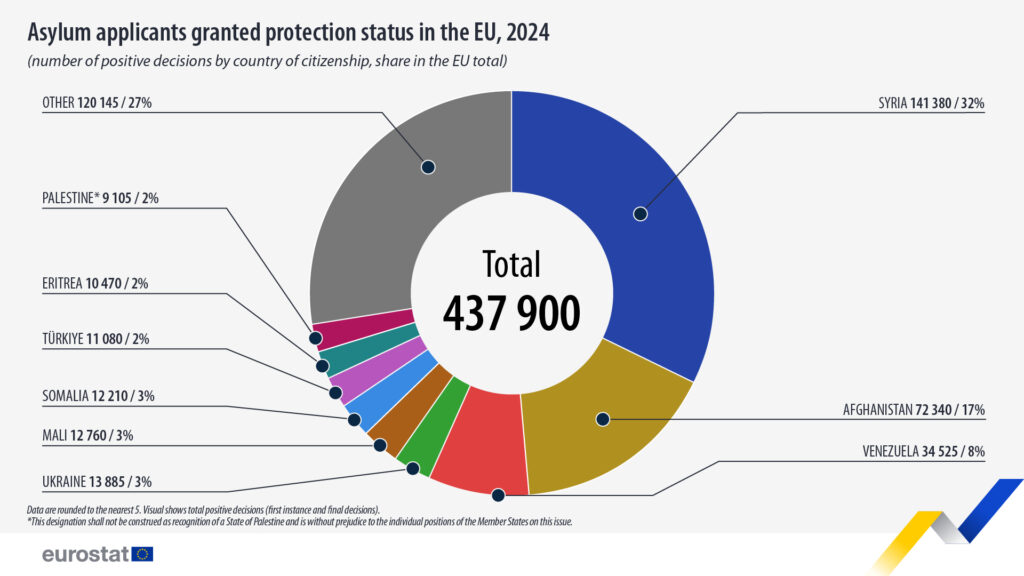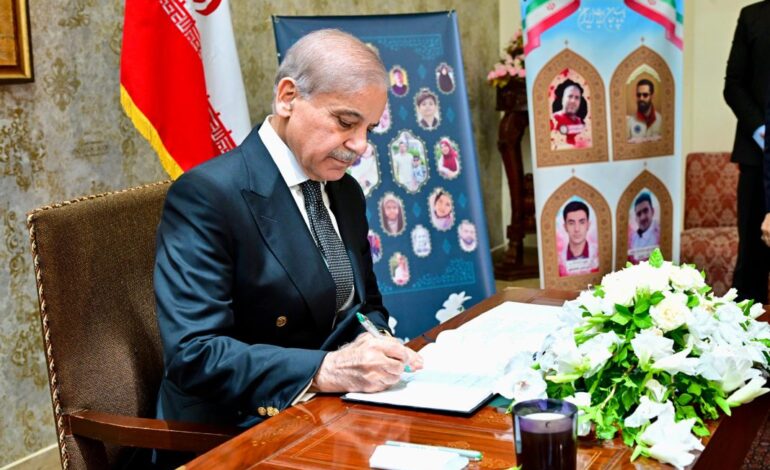The number of people seeking refuge and political protection in Germany rose in 2024 in comparison to the previous year, official data show. Meanwhile, former Chancellor Angela Merkel has criticized her party’s policies.
Asylum-seeker numbers in Germany rose in 2024, with official data showing an increase in people seeking refuge and political protection compared to the previous year. Here’s a breakdown;
Total Asylum Applications: Germany registered 229,751 first-time asylum applications and 21,194 subsequent applications in 2024, with a slight decrease in first-time applications (-30.2%) and a minor drop in subsequent applications (-7%) compared to 2023. – Main Countries of Origin: Syria, Afghanistan, and Türkiye remained the top countries of origin for asylum applicants, with Syrians accounting for a significant portion of applicants. – Protection Rate: The overall protection rate stood at 44.4%, with 133,710 positive decisions out of 301,350 total decisions made in 2024. – Pending Cases: Average processing time for asylum applications was 8.7 months, with some cases taking longer due to the high volume of applications.

Court Cases: Over 100,000 appeals against rejected asylum cases were filed in 2024, marking a significant increase from previous years. Germany’s asylum landscape saw notable developments, including : –
Increased Deportations: Germany deported 18,384 individuals in the first 11 months of 2024, with 5,827 being Dublin transfers to other EU countries
New Legislation: The government introduced reforms to detention and return frameworks, sparking criticism from civil society.
Budget Increase: The Federal Office for Migration and Refugees (BAMF) received a significant budget boost to address the rising number of asylum applications.
Former German Chancellor Agela Markel, meanwhile, criticized the rejection of asylum-seekers at Germany’s borders, a policy being implemented by the current government led by Chancellor Friedrich.
The issue of migration has been a major theme in German politics for many years.
Merz’s new government has sought to impose tougher measures to control irregular migration, including turning away asylum seekers at the border and limiting family reunification for some categories of asylum-seekers.
“If someone stands at the German border and says they need asylum, they must receive the proper due process,” Merkel said in a conversation with five refugees in Berlin, a conversation published by public broadcaster WDR.
“As far as I’m concerned, the process can take place at the border itself, but a process must take place.”
Merkel said that while there needs to be a system as a result of which people smugglers will not get to decide who comes to Germany, there needs to be a consideration regarding who needs asylum the most, also mentioning the role the job market’s need for employees plays.
“We have to think about it in European terms,” Merkel said.







